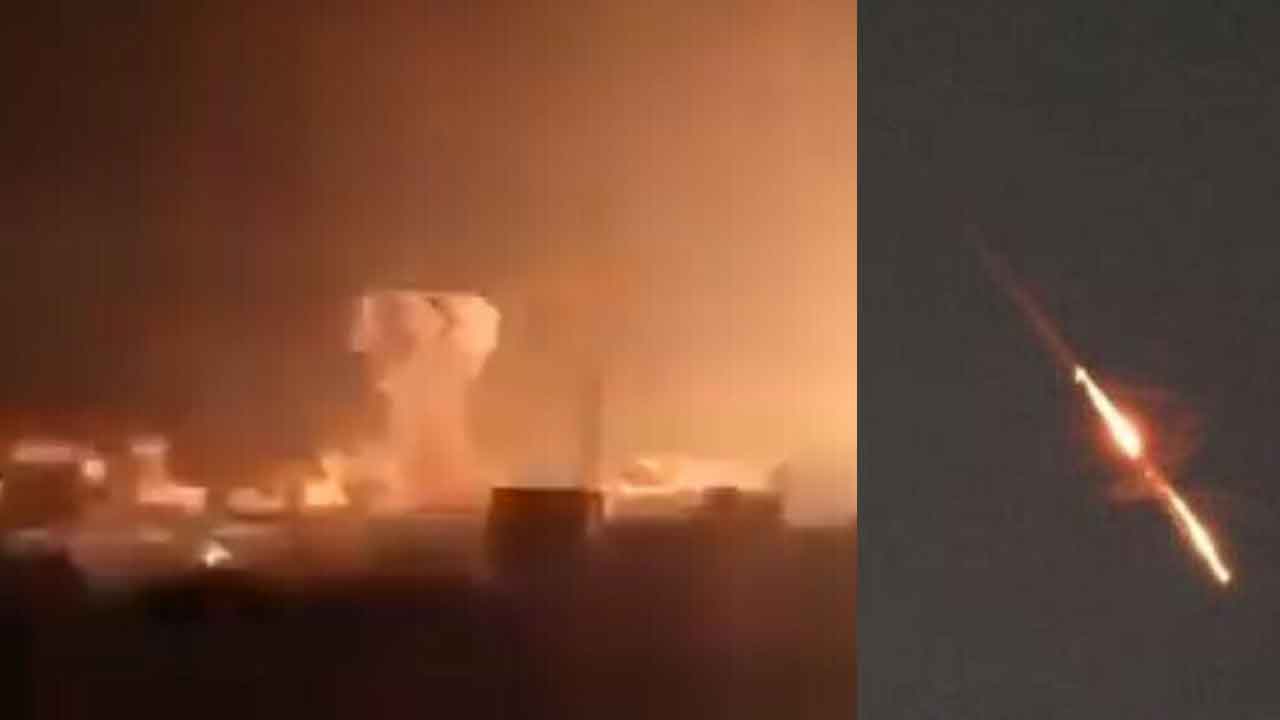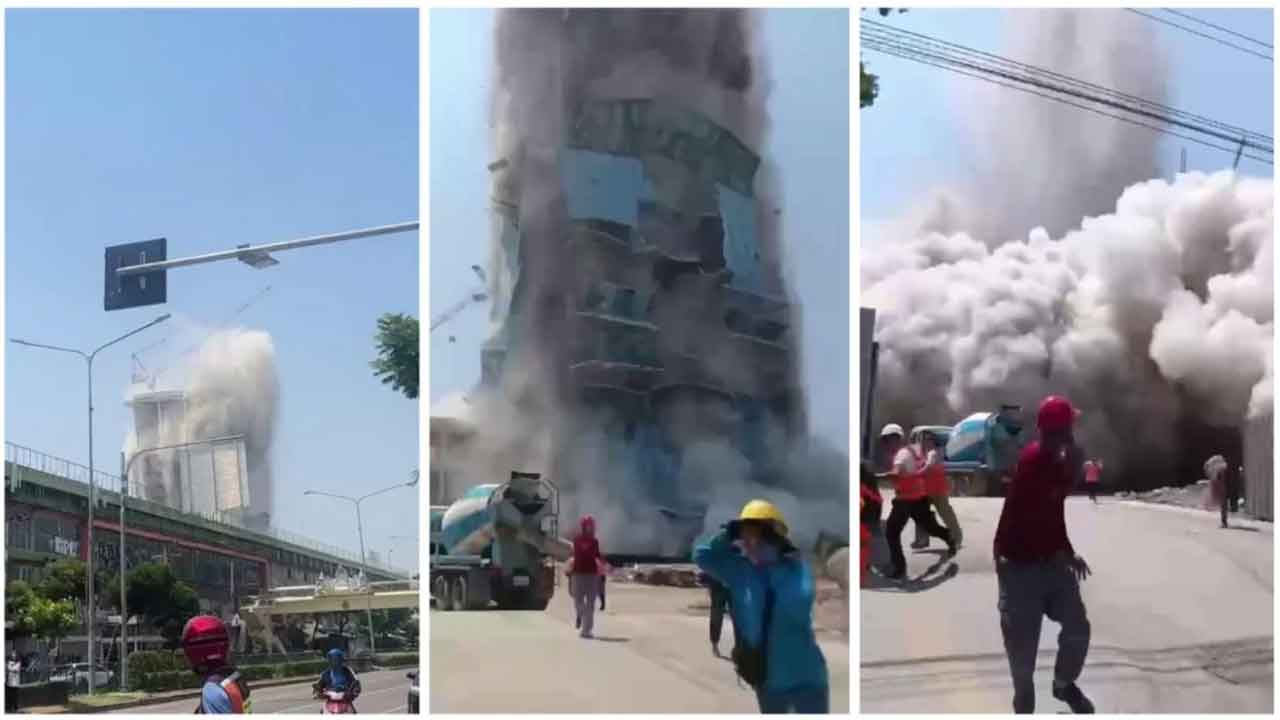Islamabad, May 7, 2025 — India-Pakistan War 2025 has been started. Indian forces carried out missile strikes targeting three locations in Pakistan — Bahawalpur, Kotli, and Muzaffarabad, The Director General of Inter-Services Public Relations (ISPR), Lt Gen Ahmed Sharif Chaudhry, confirmed it — in what he termed a “cowardly and provocative attack.”
At least 3 peoples killed from Pakistan sides, in these strikes.
In an exclusive statement to ARY News at 1:06 AM, Lt Gen Chaudhry stated: “A short while ago, Indian forces conducted air strikes on the Subhanullah Mosque in Bahawalpur’s Ahmed East area, as well as in Kotli and Muzaffarabad. These attacks were launched from within Indian airspace without crossing into Pakistani territory.”
He emphasized that Pakistan’s air force jets were immediately airborne in response to the aggression, and assured the nation that Pakistan will retaliate “at a time and place of its choosing.”
“This shameful and hostile act by India will not go unanswered. Any temporary satisfaction India may feel from this attack will soon turn into lasting regret,” he added.
When asked about casualties and damage, the DG ISPR said that assessments are underway and further details will be shared in due course.
Residents of Muzaffarabad reported hearing multiple loud explosions around midnight near the surrounding mountains. According to eyewitnesses cited by Reuters, the city experienced a power outage following the blasts.
Earlier, Pakistan’s Defence Minister Khawaja Asif warned of a possible military confrontation, saying, “A clash with India can happen anytime,” amidst rising tensions following a deadly militant attack in Indian-occupied Kashmir.
The April 22 attack in Pahalgam killed 26 people, mostly tourists, marking one of the deadliest incidents since 2000. India, without conclusive evidence, alleged cross-border involvement. Pakistan has strongly denied the accusation and called for an independent investigation.
With tensions escalating, Pakistan has heightened its military readiness, while India has reportedly granted its armed forces "operational freedom." Despite the crisis, diplomatic efforts remain active to avoid further escalation.
Prime Minister Shehbaz Sharif, along with Defence Minister Asif, visited the Inter-Services Intelligence (ISI) headquarters earlier in the day to review the country's preparedness against conventional threats.
In a later interview on Geo News, Asif reiterated his earlier statement, asserting that military conflict with India remains a real possibility.
Table of Contents
- India-Pakistan War History : A Comprehensive Analysis of Conflicts and Tensions
- Introduction
- Historical Background: The Partition of 1947
- Major Wars Between Pakistan and India
- Detailed Analysis of Each War
- 1. First Indo-Pak War (1947-1948)
- 2. Second Indo-Pak War (1965)
- 3. Third Indo-Pak War (1971 – Bangladesh Liberation War)
- 4. Kargil War (1999)
- Ongoing Tensions and Future Risks
- Conclusion
India-Pakistan War History : A Comprehensive Analysis of Conflicts and Tensions
Introduction
The conflict between Pakistan and India is one of the most prolonged and volatile disputes in modern history. Since their independence from British rule in 1947, the two nuclear-armed neighbors have engaged in multiple wars and countless skirmishes, primarily over the disputed region of Kashmir. This article explores the history of Pakistan-India wars, their causes, key events, and the ongoing tensions that threaten regional stability.
Historical Background: The Partition of 1947
The roots of the Pakistan-India conflict trace back to the partition of British India in 1947, which created two independent nations: India (with a Hindu majority) and Pakistan (with a Muslim majority). The division was marred by horrific violence, mass migrations, and territorial disputes, particularly in the princely state of Jammu and Kashmir.
Major Wars Between Pakistan and India
Since 1947, India and Pakistan have fought four major wars and several smaller military conflicts. Below is a detailed table summarizing these wars:
| War/Conflict | Year | Cause | Key Events | Outcome |
|---|---|---|---|---|
| First Indo-Pak War | 1947-1948 | Dispute over Jammu and Kashmir after Maharaja Hari Singh acceded to India | Pakistani tribal militias invaded Kashmir, leading to Indian military intervention | Ceasefire mediated by UN; Kashmir divided along the Line of Control (LoC) |
| Second Indo-Pak War | 1965 | Pakistan's Operation Gibraltar to incite rebellion in Kashmir | Large-scale battles in Punjab and Kashmir; India captured key positions | Tashkent Agreement (1966) restored pre-war borders |
| Third Indo-Pak War (Bangladesh Liberation War) | 1971 | Pakistan's military crackdown in East Pakistan (now Bangladesh) | India intervened in support of Bengali rebels; Pakistan surrendered | Creation of Bangladesh; Simla Agreement (1972) established LoC |
| Kargil War | 1999 | Pakistani soldiers and militants occupied positions in Kargil (Indian-administered Kashmir) | India launched Operation Vijay to reclaim territory | Pakistan withdrew under international pressure |
| Other Major Conflicts | 1984 (Siachen Conflict), 1999 (Kargil War), 2019 (Balakot Airstrike) | Border disputes, terrorism, and proxy wars | Military standoffs, airstrikes, and diplomatic tensions | Ongoing tensions with periodic escalations |
Detailed Analysis of Each War
1. First Indo-Pak War (1947-1948)
-
Cause: The Maharaja of Kashmir’s decision to join India led to an invasion by Pakistani-backed tribesmen.
-
Key Events: India airlifted troops to defend Srinagar; fierce battles ensued.
-
Outcome: The war ended with UN mediation, dividing Kashmir into Indian-administered and Pakistani-administered regions.
2. Second Indo-Pak War (1965)
-
Cause: Pakistan launched Operation Gibraltar to infiltrate Kashmir and incite rebellion.
-
Key Events: India retaliated with attacks in Punjab and Lahore.
-
Outcome: The Tashkent Agreement restored pre-war boundaries but left Kashmir unresolved.
3. Third Indo-Pak War (1971 – Bangladesh Liberation War)
-
Cause: Pakistan’s brutal suppression of Bengali separatists led to a refugee crisis in India.
-
Key Events: India supported Mukti Bahini (Bengali rebels) and defeated Pakistani forces.
-
Outcome: Bangladesh gained independence; Pakistan surrendered 93,000 soldiers.
4. Kargil War (1999)
-
Cause: Pakistani troops and militants occupied strategic heights in Kargil.
-
Key Events: India launched air and ground operations to reclaim territory.
-
Outcome: Pakistan withdrew under US diplomatic pressure; India regained control.
Ongoing Tensions and Future Risks
Despite ceasefire agreements, Pakistan and India remain locked in a dangerous standoff due to:
-
Kashmir Dispute: Both claim full control over the region.
-
Cross-Border Terrorism: India accuses Pakistan of supporting militant groups.
-
Nuclear Arms Race: Both nations possess nuclear weapons, raising global concerns.
-
Diplomatic Stalemate: Peace talks have repeatedly failed due to mutual distrust.
Conclusion
The Pakistan-India conflict remains one of the world’s most dangerous flashpoints. With unresolved territorial disputes, historical grievances, and nuclear capabilities, the risk of another war looms large. Diplomatic efforts, confidence-building measures, and international mediation are crucial to preventing further escalation.










